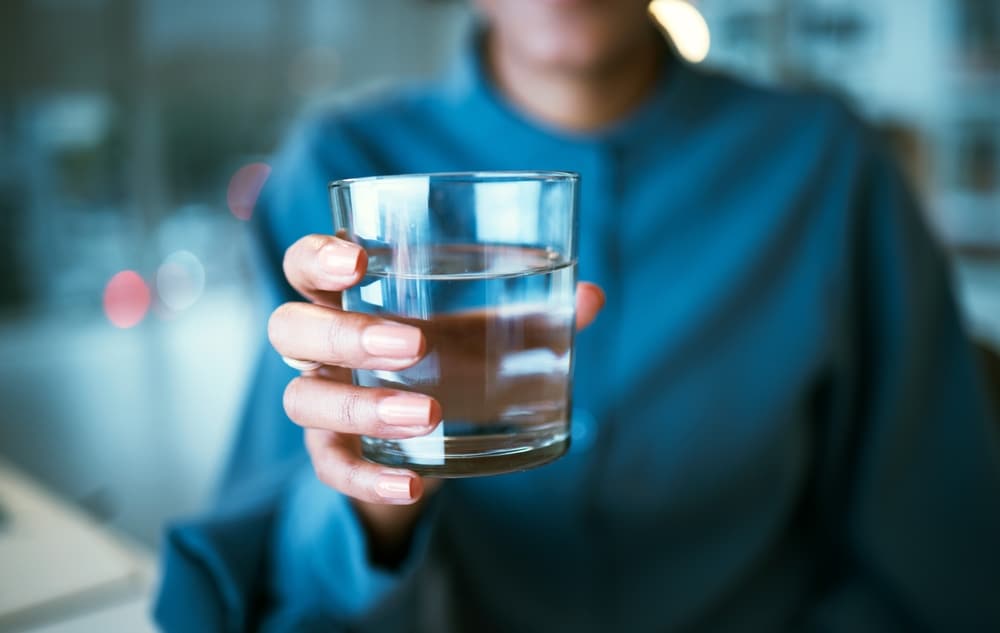
We’ve all heard experts and doctors say that staying hydrated is key to optimal health. While the exact amount of water you need each day varies depending on which study you look at, the answer for most people is, “Drink more water.” Not only is hydration important for overall body function, but it also plays a role in weight loss.
If you are on a ketogenic diet or you’re considering a ketogenic diet, then this post is for you.
The Miramont Wellness Center team will explain how dehydration can derail your weight loss efforts and make your medical weight loss injections less effective. There are so many reasons to prioritize water intake. Let’s get started.
Understanding Ketosis and Weight Loss Medications
Ketosis is a metabolic state where the body burns fat for fuel instead of carbohydrates. This process produces ketones, which are used for energy. For those on a weight loss journey, especially those using ketosis and weight loss medications, drinking plenty of water is essential to maximize results.
Ketosis occurs when carbohydrate intake is drastically reduced, causing the body to break down fat into ketones, which are then used for energy. This shift can lead to significant weight loss as the body taps into fat reserves. Weight loss medications, such as semaglutide, enhance this process by boosting the body’s natural ability to burn fat, regulate appetite, and maintain a healthy metabolism. These medications can accelerate the transition into ketosis and improve the body’s efficiency in utilizing fat stores.
The Role of Water in Fat Metabolism
Water plays a critical role in the fat-burning process. When fat molecules are metabolized, they are broken down into glycerol and fatty acids. These components are further processed to produce energy, with carbon dioxide (CO2) and water as byproducts. Drinking water helps the body efficiently expel CO2 through respiration. Without adequate hydration, this process can be hindered, slowing down metabolism and reducing the effectiveness of fat burning.
According to Dr. Bender, “Ketosis happens when your body takes a fat molecule and adds a water molecule, turning it into a ketone body. You then burn this ketone as fuel and then exhale it as carbon dioxide and water. You literally breathe it out it’s like a jet airplane turning jet fuel into a chemtrail, and people are sometimes surprised to hear that. If you want to burn several pounds of fat, then you’re going to need several pounds of water”.
Why Water Substitutes (Tea, Coffee, Energy Drinks, Etc.) Aren’t as Effective
While beverages like tea, energy drinks, and coffee can contribute to daily fluid intake, they are not as effective as water in promoting weight loss.
Caffeine and Dehydration
Many of these drinks contain caffeine, which acts as a diuretic, increasing urine production and potentially leading to dehydration. This diuretic effect can cause the body to lose essential fluids more rapidly than they are replaced, resulting in dehydration. Symptoms of dehydration include headaches, dizziness, and fatigue, which can adversely affect daily activities and overall health. It is important to be mindful of caffeine intake, especially from multiple sources, to maintain proper hydration levels.
Added Sugars and Artificial Sweeteners
Energy drinks and flavored teas often contain added sugars and artificial sweeteners, which can contribute to unwanted calorie intake. Excessive consumption of these additives can lead to weight gain and metabolic imbalances. Added sugars provide empty calories with no nutritional benefit, while artificial sweeteners may have adverse effects on metabolism and appetite regulation. These factors can undermine weight loss efforts and overall health goals. Opting for drinks without added sugars or artificial sweeteners can help manage calorie intake more effectively.
Coffee and Hydration Balance
Although coffee is low in calories, it can still disrupt hydration balance if consumed in excess. The caffeine in coffee can increase urine production, leading to a loss of fluids. While moderate coffee consumption can be part of a healthy diet, excessive intake can contribute to dehydration. It is important to balance coffee consumption with adequate water intake to maintain optimal hydration and prevent the negative effects of dehydration.
How Much Water Should You Drink on Semaglutide?
Dr. Bender recommends between 64 and 80 oz of water each day and between 80 and 100 oz if you are working out or work outside on hot sunny days.
“You will not lose very much weight if you do not have enough water intake, and this is probably the biggest mistake we see people make. They’re taking the weight loss shot, and they’re expecting it to do everything on is own, not realizing that water is one of the quintessential ingredients to have a good ketosis. It’s like trying to make bricks without straw. If you don’t have the water, you’re not going to turn in the fat into these Ketone bodies. Your liver also struggles as it tries to pull the water from elsewhere. You become intravascularly and intracellularly depleted, get light-headed dizzy, and have headaches and nausea.”
Don’t Forget These Other Benefits of Being Fully Hydrated
Apart from aiding weight loss, staying fully hydrated offers numerous health benefits. Proper hydration helps maintain optimal digestion, supports kidney function, and enhances cognitive performance. It also helps regulate body temperature, lubricates joints, and keeps the skin healthy and radiant. For those engaging in physical activity, staying hydrated is crucial to prevent cramps, fatigue, and heat-related illnesses. Overall, adequate water intake is a cornerstone of good health and well-being.
Learn More About Medical Weight Loss
At Miramont Wellness Centers, we offer comprehensive weight loss programs tailored to your needs, including guidance on hydration and the benefits of weight loss medications like semaglutide. Learn more about how we can help you achieve your weight loss goals and maintain a healthy lifestyle. Contact us today to start your journey towards a healthier you.
